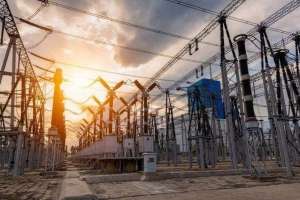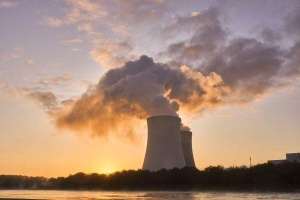The recently released World Bank Country Report on Romania contains a phrase that reveals one a core origin of many of the problems that make Romania a "special' case. The World Bank's specialists compare foreign capital participation in the Czech privatization process and in the Romanian privatization process. The conclusion is that, while in The Czech Republic foreign capital accounts for some 39 percent of the major companies, in Romania it accounts for half that much - 19 percent.
Through this conclusion, The World Bank's Report on Romania points to a fact that many foreign investors reproach Romania. Of all the former USSR satellites in Eastern Europe that have transited to democracy and capitalism, Romania is the only one that has made an effort to place its recently born market economy under the control of domestic capital rather than under the control of foreign capital.
In their struggle to satisfy international pressures for the privatization of the State-controlled mammoths, the Romanian authorities have often complained of the lack of interest manifested by foreign investors in general and multinationals in particular towards the Romanian companies put up for privatization. It often happened that, after a certain privatization deal seemed to have aroused the interest of one or several multinationals that appeared ready to compete for that respective Romanian enterprise, the bidder(s) eventually dropped out of the race leaving the deal either unconcluded or concluded under worse terms than originally anticipated.
RomTelecom is one such example. Eventually, The State "privatized' it to a company controlled by The Greek State. Most of the formerly State-held banks are further examples in this respect. The largest of them, BCR, is now in a situation where no one is willing to buy it and so the political decision has been made to make EBRD and IFC shareholders in the bank. And the list of examples goes on... However, WB specialists see the Romanian privatization process from a different perspective. Their Report simply suggests that domestic capital (and capitalists) was favored to the loss of foreign capital.
In light of the aforementioned examples, this conclusion is questionable. If we believe that this is really how things went, then the entire history of Romania's post-communist economy appears as the process of forming, through political and administrative measures, a group of Romanian capitalists to whom The State preferentially privatized most of the economy (some 80 percent of the privatized economy), to the loss of foreign capital.
Corruption played a key role in this process as it was corruption that allowed Romania's "nouveaux riches' to acquire (by defrauding State-run banks) the money they needed to purchase companies put up for privatization and, upon privatization, to be preferred by those running the tender. We can therefore understand why foreign investors, supported by Western political institutions, have been complaining so loudly about corruption in Romania. We can also understand why they pressed for the disbandment of Bancorex and then for the privatization of Romania's largest banks to foreign players. But corruption was not the only factor at play. The inflation rater, which reached sky-high values precisely in the period when the most significant privatization deals were concluded (1997-2000), favored domestic capital by "melting' its ROL-denominated debts and disfavored foreign capital by "melting' its investments. State subsidies plus debt pardons (which is a form of hidden subsidies) were also used to support Romanian capitalists. Sometimes, in perfectly legal ways. Sometimes in not-so-perfectly legal ways, such as politically influenced negotiations on privatization terms. Laws also played a crucial role in this process. Let us recall that, precisely in the period when Romania was "an emerging market' (1997-1998), when the foreign capital flow entering the country's capital markets, especially RASDAQ, was surprisingly high, The National Bank's regulations were rather prudent and reticent towards such a rapid and substantial inflow of foreign money. Not necessarily because The National Bank had something against foreign capital, but because the situation was abnormal and eventually harmful. Nevertheless, such prudence and reticence mattered.
Romania's slow and unpredictable administration mattered, too. And so did the Romanian capitalists' ability to influence the law-making process to their favor. A practice that has survived to this day, the new law on capital markets being a good example in this respect.
The draft found its way to Parliament very late and, because it must pass before end-June in order for another EU accession negotiation chapter to be concluded, it will probably pass without much ado. However, the draft stipulates that no shareholder in a financial investment firm (SIF) can have more than 0.1 percent of the votes, although a shareholder can have up to one percent of the shares. Evidently, it is a stupid provision, considering that, if 100 shareholders own one percent each, then all of them have only ten percent of the votes and therefore cannot make any decision. But why is there such provision? Obviously, to prevent concentration of shares in a SIF. Which will happen anyway as both foreign investment funds and domestic players will go around the law and buy shares through proxies. But, if one needs 1000 trusted people to buy a SIF, then that one has more chances of doing so if he/she is Romanian. Moreover, if "someone' makes it difficult for foreign players to buy shares in a SIF, then foreigners will be less interested in buying those shares and so the price will remain low. Foreign players could easily eliminate domestic competitors from the race by making massive purchases, but they are discouraged by the alliance between Romania's capitalists and politicians.
Consequently, the battle fought in the budding Romanian economy is being fought between foreign capitalists, who have the money, and Romanian capitalists, who have the political influence. We can already wager on who they winner may be...























































